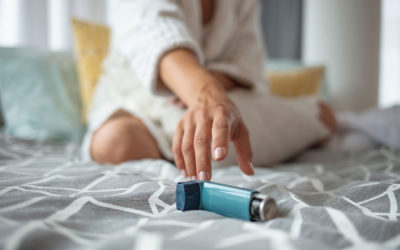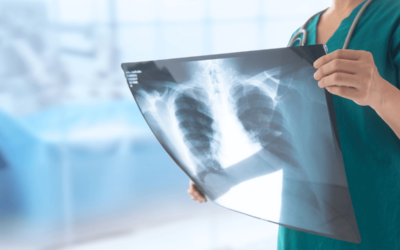Clinical Trial Volunteer Opportunities
Every day, the research staff at VirTus conduct vital clinical trials and respiratory medical research to develop new treatments, vaccines and drugs. This important work relies on volunteers participating in clinical research to learn more about the safety and efficacy of a new drug or treatment.
Become a clinical trial volunteer with VirTus today and play your part in the battle against lung diseases.
Take part in new medical research
A rich & rewarding experience
Help cure severe illnesses
Work with a world-class research team
Learn about respiratory conditions
Volunteer for Clinical Trials with VirTus
Becoming a clinical trial volunteer gives you a unique opportunity to participate in medical research study and contribute to new treatments.
Respiratory conditions cause severe pain and suffering, but volunteers help give every patient access to the very best treatment and drug/s. Our clinical research is vetted to the highest standards of safety with minimal risks or side effects.
“It was an interesting and meaningful experience. The trial was well explained from start to finish and I was always treated with politeness and care. I can honestly say I enjoyed my visits with the clinical study team.”
Justin, clinical trial volunteer
Our Clinical Research Areas
The clinical research and human studies we facilitate cover a wide range of respiratory conditions. Learn more about our specific areas of research study.
Rhinovirus (RV) Challenge Model
- Healthy non-smokers
- Smokers without airway obstruction
- Asthma patients
- COPD patients
- Healthy older persons
- Chronic cough patients
Respiratory Syncytial Virus (RSV) Challenge Model
- Healthy non-smokers
- Healthy older persons
Lower Airways Sampling Techniques
- Lung function/Spirometry
- Histamine (PC20) challenge
- Bronchial biopsy
- Primary bronchial epithelial cell brushings including culture ex vivo
- Synthetic absorptive matrix (SAM) sampling of lower airways (bronchosorption)
- Bronchoalveolar lavage (BAL)
- Induced sputum
- Immune cell analysis in lower airways by state-of-the-art flow cytometry
Upper Airways Sampling Techniques
- Nasal curettage for gene expression or flow cytometry
- Nasal brushings including culture ex vivo
- Synthetic absorptive matrix (SAM) sampling of nasal mucosa (nasosorption)
- Immune cell analysis in upper airways
“From start to finish my experience taking part in the trial was an entirely positive one.
The nurses and physicians I encountered were professional and caring, answering my questions honestly and explaining every stage of the trial in detail along the way. The whole process went very smoothly without any problems. There was flexibility with the appointment times, which allowed for minimum disruption to my other commitments.”
Katie, clinical trial volunteer
Clinical Trial Volunteer FAQs
Why Volunteer for Clinical Trials?
There are many reasons to volunteer for clinical trials and become involved in leading respiratory research. The volunteers we work with often communicate their excitement about participating in the development of new treatments, as well as working alongside world-class research staff. Many volunteers find clinical trials to be an enriching, rewarding and engaging experience, and a research study to be extremely edifying – after all, these are the people on the frontline of new vaccines and treatments.
- Further medical research in respiratory conditions
- Help develop a potentially life-saving new drug
- Assist in treatment for ‘everyday’ ailments such as the common cold
- Learn about medical research, including side effects, risks and safety
- Gain insight into conditions such as asthma and COPD from our research team
Where Do the Clinical Trials Take Place?
What is it Like to Participate in a Trial?
As with all medical research, every clinical study is different; with that said, here is a general snapshot of what to expect.
Our clinical trials usually test new treatments for respiratory conditions or the common cold. During these visits the research staff may carry out lung function tests and take small samples of blood and sputum (phlegm or mucus), and take samples from your nose. You may also be asked to complete daily symptom diaries at home.
Most visits last between 40 minutes to an hour, although some can be longer than this. The number of visits will vary according to the trial, but you will be given all this information – along with information about safety precautions and any risks – at your screening visit.
Are There Any Risks or Side Effects?
Naturally for clinical research, no trial is 100% free of risks – few things are in groundbreaking medical research. With that said, becoming a clinical trial volunteer with VirTus is extremely safe. Where there may be risks posed to patient safety, however small or unlikely, they will of course be communicated openly with the patient.
In terms of side effects, you might find that you experience light or mild cold-like symptoms following your experience as a clinical trial volunteer. The development of new treatments requires volunteers to be exposed in some way to whichever condition the clinical trials aim to address. Our research staff can provide more detail regarding side effects and safety at the time of your visit.
What is the Screening Process Like?
When you register your interest with VirTus, our research team will contact you by phone or email to assess whether you qualify for any of our ongoing clinical trials. This will involve questions about your age, health and lifestyle habits.
You may then be invited for a screening visit at St Mary’s Hospital, where you will receive more information about the trial and have the opportunity to ask any questions. Our NHS clinical research staff will then determine whether you are suitable for the trial; they will ask you questions about your medical history, test your lung function and take a blood test.
You will be asked to sign a consent form before this process begins. If you meet the screening criteria, you will be given the opportunity to enrol on a trial, but this is completely voluntary.
Will I Definitely Receive a New Medication?
No, not necessarily. In keeping with world-leading medical research, our clinical trials are usually ‘placebo controlled’. This means that half of our volunteers will receive the new drug, vaccines or new treatments, and the other half will receive a treatment that does not contain the active ingredient (essentially a sugar pill). This allows researchers to determine how effective the medication is.
Can I Change my Mind Once I Agree to Take Part?
Yes. Participating in clinical trials is completely voluntary and you are, of course, under no obligation at any time. You are free to withdraw at any stage – this will not affect your normal medical care.
Will I Be Paid for Taking Part in a Trial?
We don’t pay people for taking part in a clinical research study. With that said, you will be reimbursed for your time, inconvenience and travel. The exact amount is dependent on the study.
Learn More about Our Human Challenge Trials
With the aid of healthy volunteers, our human challenge clinical trials help develop new treatments and groundbreaking drug/s in response to asthma, COPD and other respiratory conditions.
The vaccines and new treatments our volunteers and research staff contribute to can help ease patient symptoms and save lives.
“The trial itself was non-invasive and not at all difficult to complete. The only downside being mild cold symptoms for several days which, whilst fully expected, were much less severe than I’d anticipated. I would happily volunteer for another clinical trial with the team and have recommended it to friends.”
Katie, clinical trial volunteer
Our World-class Medical Research
Healthy volunteers contribute significantly and in meaningful ways to our current range of clinical trials. Browse our publications here.
Bronchial mucosal IFN-α/β and pattern recognition receptor expression in patients with experimental rhinovirus-induced asthma exacerbations.
Click the button below to read more about this.
Host DNA released by NETosis promotes rhinovirus-induced type-2 allergic asthma exacerbation.
Click the button below to read more about this.
Corticosteroid suppression of antiviral immunity increases bacterial loads and mucus production in COPD exacerbations.
Click the button below to read more about this.


